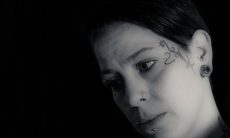If you follow my blog, you might have seen that there was a big story in my hometown of Ridgewood, New Jersey last week, where my son’s middle school principal wanted to ban Facebook for students. I didn’t agree with him, but it is hard to disagree with his concern over cyber-bullying. In some ways, businesses grappling with social media run into some of the same issues, where foul language, angry rants, and lots of venting sometimes bring more heat than light to discussions. But after thinking about the discussions of last week a lot more over the weekend, I am starting to wonder if the problem with social media is not the heat, but the anonymity.
If you read my post from last week, I hope you checked the great discussion in the comments about this issue, even by students. One of the things that came up over and over was the difference between Facebook and Formspring, which mainly has to do with the level of anonymity allowed the participants. Too often, people lump together all social media into the same bucket, which happened in last week’s discussion. The principal wanted to ban usage of all social networks, regardless of how they work.
Now, I don’t want to be too critical, because middle school principals shouldn’t have to be experts in social media, any more than my business clients are. But I see social media misunderstood all the time, including by businesses, which can make social media scarier than it should be.
Social media is a tool, not unlike a telephone. But there are many uses for telephones. Most of the uses are extremely helpful and valuable. Some of those uses (such as dialing a phone sex service) shouldn’t be something we allow children to do. And some behavior on the phone (threatening calls) are nothing any adult should have to be subjected to either. Social media, unfortunately, is the same–just a tool. While banning social media for children might seem to solve the problem, it doesn’t, any more than banning use of the phone solves those problems. And businesses can stay away from social media because of these problems, but they will soon suffer the consequences, just as if they banned use of the phone.
We don’t expect parents to ban phone usage for children to keep them from calling phone sex numbers–those services need a credit card to be provided, which keeps (almost all) kids out. It’s illegal for anyone to make an obscene or threatening phone call, so it’s (mostly) safe for kids to answer the phone, too. Likewise, businesses can be comfortable allowing their employees to make and receive calls, even though they know that the phone can sometimes be a nefarious or dangerous venue. We’ve placed enough restrictions on phone usage that we don’t have to worry. We might need to do the same thing for social media, even though those controls might be different.
I keep coming back to the anonymity as a big part of the social media problem. Think about how you think about an anonymous phone call versus calls where the callers identify themselves, even though you don’t absolutely know for sure who they are. If you looked at my post earlier, and then you looked at a similar post on the same subject that allows anonymous comments, you’ll see that the differences are striking. His post was a bit more inflammatory than mine, but check the difference in tone between the anonymous commenters and the ones who identified themselves on his blog.
That is what bullying is all about. Bullies are cowards by nature, so they won’t do what they do if they can be found out and held responsible. Online bullies want to be anonymous, whether they are children bullying other children or adults bullying businesses or celebrities or others.
So, where does that leave us? I think that we so-called experts in social media and the social networks themselves must step up and make this whole industry safer for both children and for adults. To me, the big thing that distinguishes safer places from less safe places is the policy on anonymity. Anonymous social media users are usually more coarse, more reckless, and more prone to the “more heat than light” problems that both children and businesses would like to avoid.
So what can be done? Clearly every person has a right to be anonymous online should they choose to be, and everyone (in most countries) has a right to free speech, even if that speech might offend other people. I would never want governments or other powerful forces to eliminate that kind of speech, but I do want people who should not be or choose not to be exposed to this kind of thing to have ways of using social media safely.
So, the first thing that we need to do is to allow people to authoritatively identify themselves if they want to. (And parents would then be able to tell their children that they may only participate in social media if they are identifying themselves.) Now, the privacy implications of this are enormous–we’d need to have a good discussion about how to ensure that our identifiable information is shared only as we want.
But we have precedence for this. Paypal knows exactly who you are, even to the point of knowing your checking account number, because it must avoid being defrauded. Paypal is extremely careful about who (if anyone) receives this information, but it’s clear who you are at all times. Facebook could do the same thing, for those that choose to participate. (In some ways, this would be similar to Amazon’s Real Names reviews, although the identification might need to be more stringent.)
To be fair to Facebook, it already prohibits those under 13 from participating, so the middle school principal should have no issue with them. Unfortunately, the students know how to game Facebook’s identification process by choosing a high school, lying about their ages, and getting other Facebook users (other kids) to confirm them. A better identification system might stop this underage usage. Or we could adopt better identification processes so that we felt that we could allow kids on social networks, but perhaps with different rules–such as they can interact only with other identified users. As for Formspring, it’s anonymous nature makes it a place that kids probably don’t belong on–think about that if you are a parent.
We constantly lament our children’s lack of judgment at times over what they are willing to post. If we clearly identified who people are, it might actually help children realize that they are not as anonymous as they think they are. It might actually help activate their judgment.
Businesses might adopt the same kind of approach. They will respond to everyone who complains about them, perhaps, but they have a different set of responses for those who identify themselves, much as an anonymous letter to a government official carries less weight than one from a registered voter. And their employees must identify themselves, too, and identify that they work for that business. Then anyone can judge the credibility of statements based on who they are from, just as you might want to know the political party of a speaker on a public issue.
And suppose we all decided we were all going to be ourselves online. I’m not saying that there is no place for anonymous discussions, but can we change the culture so that being anonymous was not the default? Not in a legal way–we would always allow people free speech–but could we set the expectation that there are places online where you know who everyone is and that identity is part of credibility in taking part in the discussion?
And could we emphasize that those are the places where children belong? And can they learn to use cyberspace in a place where there are training wheels? Can we run our businesses so that we respond differently to people who identify themselves than those who don’t?
I don’t know that there are no holes in this idea. In fact, I suspect that there are many. But I need to take my own advice and do it wrong quickly. I’d rather put out this half-baked idea and ask people to shoot holes in it than keep thinking about it and have nothing happening. What’s wrong with all of us deciding to identify ourselves in our online lives and asking others to do the same? Please let me hear it in the comments below.

![Reblog this post [with Zemanta]](http://img.zemanta.com/reblog_e.png?x-id=3d48f3ae-0024-43c3-8b70-ab5f7ede80ed)



